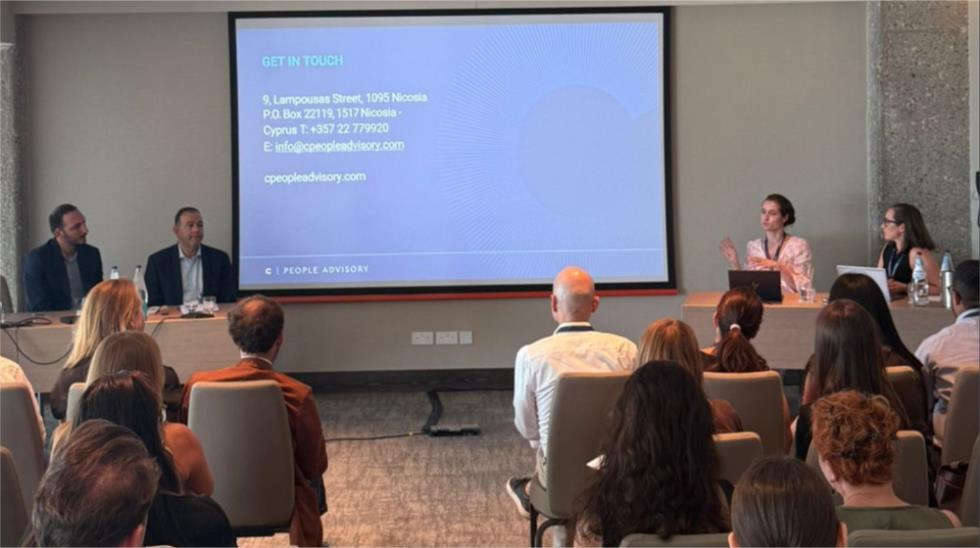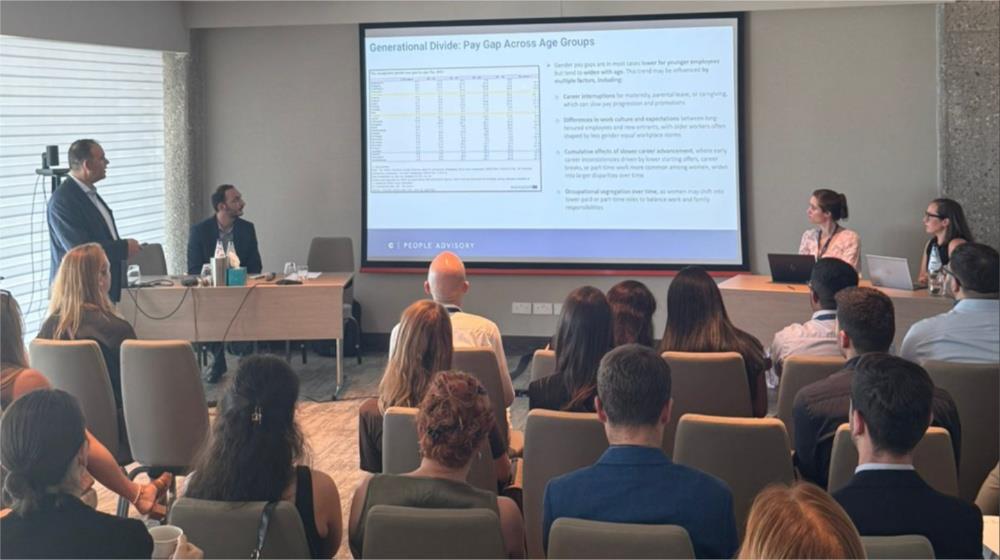The principle of equal pay for equal work has long been a cornerstone of European employment law. Yet, despite ongoing progress, the gender pay gap remains a reality across the EU — and Cyprus is no exception. While the island reports a pay gap of around 12%, according to Eurostat, inequality still persists in key sectors and senior roles.
With the upcoming enforcement of EU Directive 2023/970, the conversation is shifting: from awareness to accountability, and from principle to practical compliance.
This was the central theme of a presentation delivered by Pavlos Charalambides and Ioannis Kailis at the WSG European Employment & Labor Practice Group Meeting, held this September in Limassol, Cyprus.
A High-Level Gathering in Cyprus
The event was part of the annual European meeting of the World Services Group (WSG) Employment & Labor Practice Group — a premier global network of leading independent law, accounting, and investment banking firms. Hosted by Chrysostomides Advocates & Legal Consultants, the meeting brought together industry experts from across Europe to discuss key legal developments, emerging compliance challenges, and strategic responses in the labor and employment landscape.
What the Directive Requires
Directive (EU) 2023/970 introduces a binding framework to combat unjustified pay differences between men and women. It includes:
· Pay transparency at the hiring stage: Employers must disclose salary ranges in job postings and may not request salary history from candidates.
· Employee right to information: Workers can request average pay levels by gender for roles of equal value.
· Mandatory reporting: Companies with more than 100 employees must report on gender pay gaps and take action when thresholds are exceeded.
· Burden of proof shift: In legal disputes, the employer — not the employee — will need to prove that pay practices are non-discriminatory.

These requirements will start applying progressively from 2026, with national implementation deadlines approaching fast.
Where Cyprus Stands
Cyprus is on the same level as the EU average on gender pay gap, and below the gender pay gap of several other EU countries. Issues remain:
· Women remain underrepresented in leadership and high-paying industries.
· Many companies have not yet institutionalised internal pay audits or transparency frameworks.
· There is limited public discourse on salary equity, often due to cultural norms and lack of regulation.
The directive provides a clear framework for tackling these challenges — but only if businesses engage early.
From Compliance to Opportunity
Charalambides and Kailis stressed that equal pay should not be approached as a compliance obligation alone, but as an opportunity for responsible leadership.
“Pay transparency drives trust — and trust drives talent retention,” they noted. Beyond legal risk management, the directive presents a chance to align with ESG principles, strengthen organisational culture, and enhance competitiveness in the talent market.
5 Key Steps for Employers
To prepare for implementation, employers are encouraged to:
1. Conduct internal pay audits
Identify gaps by analysing salary structures across gender and comparable roles.
2. Standardise job classifications and criteria
Ensure objective, documented frameworks for assessing and rewarding work.
3. Develop internal communication plans
Train HR and leadership teams, and prepare to respond to employee information requests.
4. Embed equity into governance and ESG reporting
Make pay fairness part of sustainability and risk disclosure strategies.
5. Act early
Avoid last-minute, reactive changes by building a roadmap now.
Conclusion: A Strategic Moment for Employers in Cyprus and Beyond
The message from the WSG Employment & Labor meeting was clear: Equal pay is no longer aspirational — it’s mandatory.
As Cyprus prepares to transpose the directive into national law, employers have a rare opportunity to lead, not follow. Those who invest in transparency, fairness, and long-term compliance will not only meet legal standards — they will also earn the trust of their people and stand out in a competitive labour market.
- Is your organisation ready for the new rules? The time to act is now. Contact: info@cpeopleadvisory.com, www.cpeopleadvisory.com, 22779920









